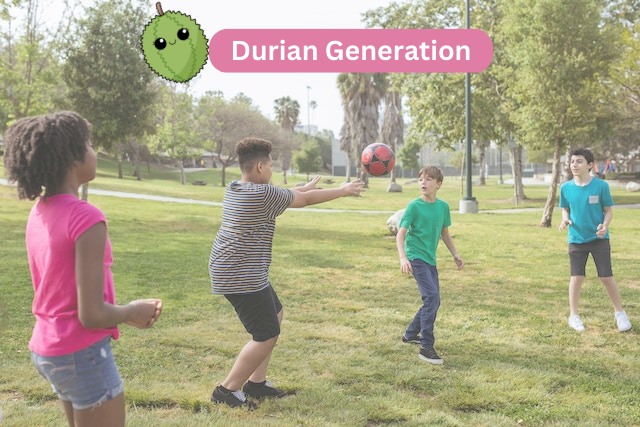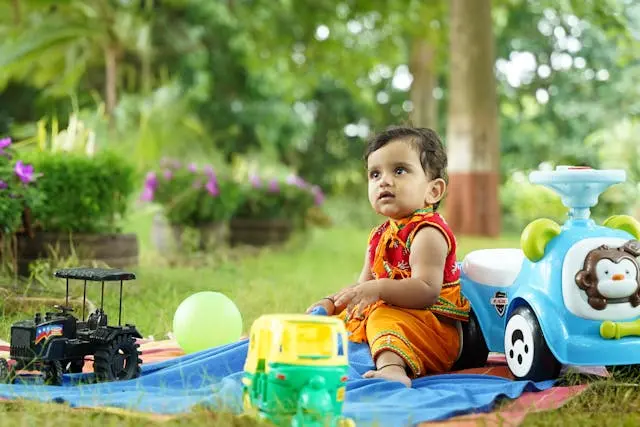In recent times, we have seen the phrase “Durian Generation” gaining popularity, particularly in Singapore.
Are you wondering what it means? Keep reading below to find out more.
Durian generation is a term that refers to the most recent youth generation. In comparison to earlier generations, they are viewed as privileged, demanding, and less resilient.
However, said that; it still remains a question for us; what exactly is the Durian Generation? And what makes them different from previous generations?
What is Durian Generation?
The term Durian Generation describes the latest generation of young people in Singapore and other countries in Southeast Asia. A standard description of this generation is that they have a highly demanding and entitled mindset, as well as- a desire for everything lavish and pricey, similar to the durian fruit. As it is, durian is well known for its powerful and effective aroma; and is also majorly cherished as a delicacy, particularly in Southeast Asia.
Do you know the difference between; Durian Generation and the previous generation?

If you don’t, no worries! We have highlighted a few primary points for your understanding.
Perhaps, the Durian generation expects more from life because they grew up in an era of comparatively great prosperity and stability.
Hence, you would notice a few common outlooks of durian generation are as follows;
- Less resilient and more entitled than previous generations.
- Not being as motivated to work hard for their objectives.
- They are more dependent on their parents for financial support.
Furthermore, the Durian Generation has indeed; grown up with the internet and social media. Thus, it has made them more aware of their surroundings and; they feel connected with the world around them.
Another aspect is that due to this exposure to an enormous variety of ideas and lifestyles, they are more open and accepting of various cultures, beliefs, and ways of life. However, the downside of it is that; they are more likely to compare themselves to others and feel insecure if they fall short.
Here are some of the characteristics often attributed to the Durian generation:

Being Entitled:
As we mentioned above, a strong sense of entitlement is one of the characteristics of the durian generation. They often feel entitled to the best without having to work hard for it.
For instance, despite not having enough money to buy it, a young person from the Durian Generation might insist on having the newest smartphone.
Self-centred:
They are perceived as being self-centred, putting their own needs and wants before those of others!
For instance, a person from the Durian Generation might put their own needs for material possessions before those of their family or community.
Lack of discipline:
Another feature that describes the durian generation is that they lack discipline. Unlike the previous generations, we have seen them born and brought in strict rules and consequences.
For instance, a person from the Durian Generation might not adhere to established rules and regulations, such as those in school or at work.
Demands immediate gratification:
A common perception of the durian generation is they focus on instant gratification and desperately want events to occur immediately!
For instance, they might demand rewards or recognition right away, even if they haven’t put in the effort to merit it.
The characteristics of Durian generation parents can vary, but some common traits include:
Let us look into a few attributes of parents associated with Durian generations.
Overindulgence:
Parents of the durian generation have a reputation for dousing their kids with material goods, presents, and privileges. They might feel obligated to give their kids whatever they ask for, which gives the kids a sense of entitlement.
Lack of discipline:
Parents of this generation may find it challenging to hold their kids accountable for their actions, which can result in a lack of discipline in their kids.
Perception of perfection:
Parents from the “Durian generation” frequently have high expectations for their kids and may pressure them to perform well in school or on the sports team.
Absence of boundaries:
Durian generation parents may find it tough to set limits and instil discipline in their kids, causing a lack of structure and discipline in the child’s life.
Overprotectiveness:
Children from this generation may experience and learn from natural consequences because of their overprotective parents.
Failing to impart life skills:
Parents of the durian generation may have trouble teaching their children the most basic life skills, such as budgeting, cooking, cleaning, etc. Hence, it can result in complete dependence on others in adulthood.
Insufficient communication:
Lack of effective communication can result in misunderstandings and emotional distance between parents and kids of the Durian generation.
However, we must understand that not all parents from the Durian generation display these traits, and every parent-child relationship is different! And indeed, parents can help foster a good and healthy relationship with their children by recognizing and addressing these tendencies.
Here are some tips on upholding clear boundaries with Durian Generation kids:
- Set clear rules and expectations:
Children need to know what is expected of them and what will happen if they don’t live up to those expectations. As a result, it may aid their discipline and sense of accountability.
- Encourage independence and self-reliance:
Durian generation kids are often used to getting their way and having their needs met immediately by others. Hence, by encouraging them to take care of themselves and solve problems on their own, they learn to be more independent.
- Teach the value of hard work:
Durian generation kids are often used to getting everything handed to them. By teaching them the value of hard work and perseverance, you can help them to develop a strong work ethic and the ability to achieve their goals.
- Limit material possessions:
Avoid showering your children with material possessions, such as gadgets, clothes, or toys. Maintaining a fair balance in gifting and knowing when to stop can help to avoid creating a sense of entitlement and encourage them to appreciate the value of what they have.
- Be a positive role model:
Lead by example and show your kids how to behave, think and react in a positive manner. Show them the importance of empathy, kindness, and respect for others.
- Teach them to be grateful:
Encourage your kids to be grateful for what they have and to appreciate the efforts of others. Teach them to say “thank you” and to show gratitude in their everyday lives.
- Encourage volunteering and giving back:
Help your kids understand the importance of giving back to the community by encouraging them to volunteer and participate in charity events.
We would say that by implementing these tips, you can assist your kids in wanting to avoid joining the negative traits of the “durian generation” and evolve into well-rounded, responsible adults.
Conclusion
The Durian Generation is a widely discussed topic that is altering how we view youth and their morals. While this Generation may have some positive traits, such as creativity and confidence, they are also often seen as entitled, self-centred, and lacking in discipline. It is vital for parents, educators, and society as a whole to address these negative traits and help the Durian Generation develop a strong sense of values, discipline, and a work ethic. By doing so, we can assist this generation in realizing their full potential and make them have a positive influence on the world.









